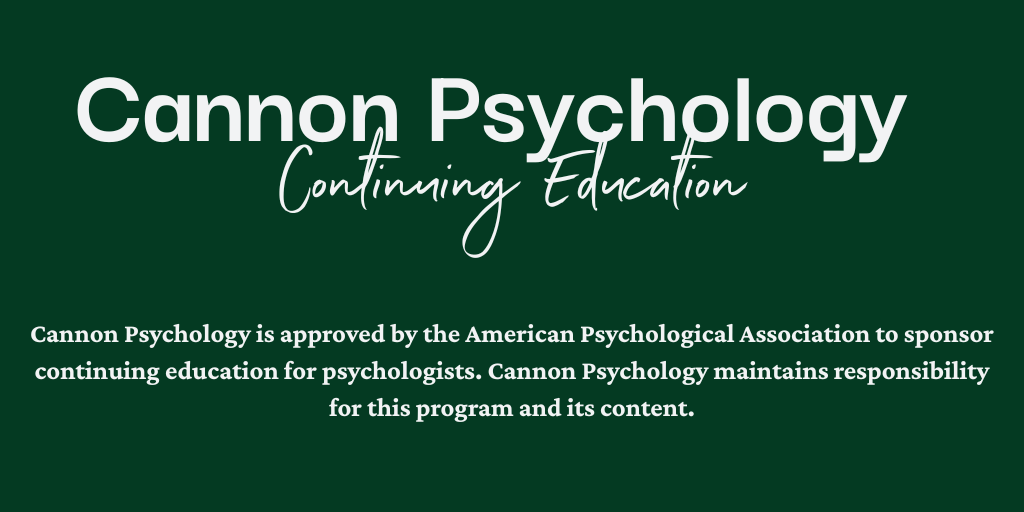

EMDR Treatment Planning: Target Selection and Sequencing
2 CE Credits
for apa and emdria
Intermediate Level
Target Audience: Psychologists & Licensed Clinicians
$39 for Course
Overview of EMDR Target Selection and Sequencing
Target selection and sequencing are often described as core components of EMDR treatment planning, yet many clinicians report feeling uncertain once they move beyond single-incident trauma. In real-world practice, clients frequently present with multiple symptoms, overlapping timelines, and complex histories that do not fit neatly into a linear model. Knowing which target to begin with—and why—can have a meaningful impact on treatment efficiency, client stability, and overall outcomes.
While EMDR training introduces the three-pronged approach as a framework for treatment planning, effective sequencing requires more than simply identifying past, present, and future targets. Clinical decision-making must account for factors such as symptom presentation, developmental trauma, attachment dynamics, dissociation risk, and current stressors. Without a clear rationale for sequencing, clinicians may find themselves feeling stalled, revising plans repeatedly, or questioning whether they are “doing EMDR correctly.”
Research continues to support EMDR as a first-line, evidence-based treatment for PTSD and trauma-related conditions. At the same time, clinical outcomes are influenced by how targets are selected and organized across the course of treatment. Inadequate sequencing can contribute to delayed symptom reduction, increased distress between sessions, or premature dropout—particularly for clients with complex trauma or co-occurring conditions such as substance use disorders.
This course is designed to support clinicians at varying levels of EMDR experience by offering a structured yet flexible approach to target selection and sequencing. Rather than presenting a single prescriptive method, the training reviews multiple evidence-informed sequencing models—including timeline-based approaches, symptom-informed sequencing, the Two-Method Approach, and developmental frameworks—allowing clinicians to adapt their planning to the client in front of them.
Through didactic instruction and applied clinical examples, participants learn how to think critically about sequencing decisions, recognize when a plan needs revision, and provide more accurate informed consent regarding the EMDR process. The focus is on developing clarity and confidence in treatment planning so clinicians can move forward intentionally, even when cases feel complex or non-linear. This training is intended to complement foundational concepts in EMDR treatment planning and target development, with related clinical resources available in the EMDR Treatment and Training Resource Hub.
About the Course
This pre-recorded webinar is available on demand and is designed to assist psychologists and other licensed clinicians who practice EMDR with one of the most misunderstood parts of treatment planning, target selection and sequencing. Inadequate target selection and sequencing can negatively impact treatment outcomes, particularly by delaying symptom reduction and increasing treatment dropout.
Via didactic presentation, attendees will review the most recent research regarding EMDR enabling psychologists provide appropriate informed consent and better meet the needs of their clients. While the "three pronged approach" in EMDR assists in an outline of treatment planning, the selection for target sequencing is more nuanced and at times may require revision.
Attendees will learn several approaches for target sequencing, including: timeline sequencing, two method approach, the strategic developmental model, symptom informed model among others. Attendees will review a vignette with common symptoms and walk through the creation of a target sequencing plan, allowing them to then design their own target sequencing plans for their clients. Course must be attended in it’s entirety, partial credit is not awarded.
EMDRIA and APA Continuing Education Credits
Learning Objectives
Discuss most recent meta-analyses of the efficacy of the EMDR Standard Protocol
Explain the three pronged approach in designing a treatment plan for Eye Movement Desensitization
Reprocessing (EMDR)
Describe three different methods/protocols for target sequencing plans
Design their own target sequencing plan for a current client
About the Instructor
Cassandra Cannon, Ph.D. is the owner and operator of Cannon Psychology since 2018. She primarily treats adult survivors of abuse and addiction. She is certified by EMDRIA as a practitioner and an approved consultant. She has worked in a variety of levels of care, including inpatient, residential and outpatient. She has been licensed to practice psychology by the State of California since 2011.
Prior to receiving credit for this course, you must:
Review the material in full.
Pass post test with minimum 75% grade with three attempts allowed.
Partial credit not awarded.
Accuracy, Utility & Limitations of Materials Presented:
This course offers accurate, practical, and research-informed content to support your professional development, with a particular focus on EMDR target sequencing and selection. You’ll learn how to identify and organize targets effectively, enhancing the precision and impact of your EMDR sessions.
The material is structured to help you understand key concepts clearly and apply them confidently in clinical practice, making it especially valuable for those with a foundational understanding of EMDR who want to deepen their skills.
While the course provides strong educational value, it's important to recognize that no single program can address every clinical nuance or fit every practitioner’s style. Target sequencing and selection in EMDR can be complex and may require additional consultation or practice beyond what this course covers.
As with any learning experience, there’s a risk of misunderstanding content or applying it without adequate context. To get the most out of the course, we encourage active engagement, thoughtful reflection, and use of supplemental resources or consultation as needed.
Refunds, Exchanges & Cancellations
Due to the digital and pre-recorded nature of this course, all sales are final. Once access is granted, there are no refunds, exchanges, or cancellations. This policy is in place to protect the integrity of the course content and prevent unauthorized use or distribution. By purchasing, you acknowledge and agree to these terms.
The instructor, Cassandra Cannon, Ph.D., is the founder of Cannon Psychology. While this conflict of interest exists, all efforts have been made to ensure unbiased, evidence-based information.
Improve your competence in EMDR Treatment Planning by clicking here to enroll in this continuing education course.
Cannon Psychology is approved by the American Psychological Association to sponsor continuing education for psychologists. Cannon Psychology maintains responsibility for this program and its content.Cannon Psychology is an EC provider (#25034) and this program(#25034-DL01) is approved for 2 EMDRIA credits. Eligibility for EMDRIA credits is restricted to those who have completed an EMDRIA-Approved Basic EMDR Training. 


